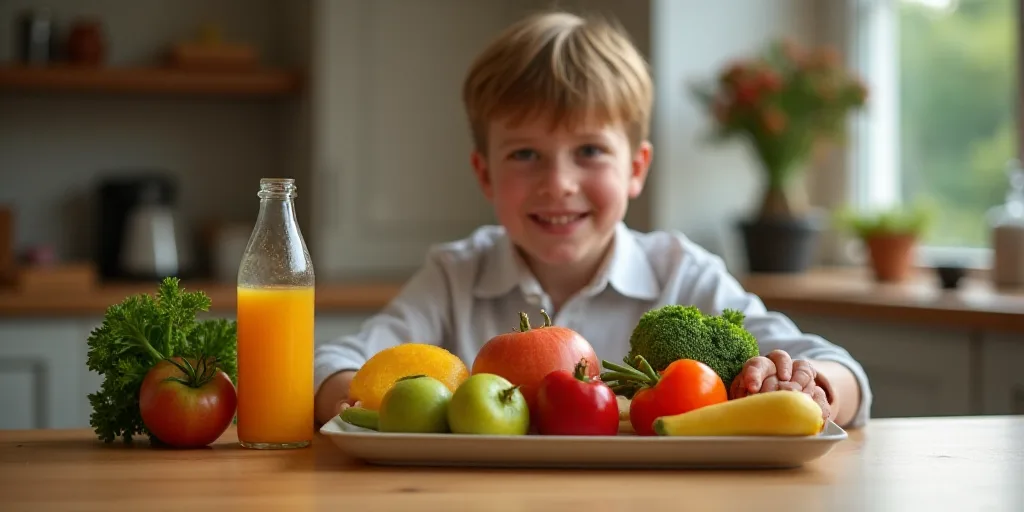Desde el 29 de marzo, se prohibió vender y promover alimentos con bajo valor nutrimental en más de 258 mil escuelas públicas y privadas del país inscritas en el Sistema Educativo Nacional. Esta medida, impulsada por la Secretaría de Educación Pública (SEP), transforma el menú escolar hacia alimentos tradicionales y saludables, obligando a la industria de snacks a reformular sus productos.
Impacto Gastronómico y Económico
Más allá del enfoque médico y epidemiológico, esta decisión tiene un impacto profundo en el ámbito gastronómico. Los sabores que alimentan la infancia están cambiando, y con ellos, los hábitos y tradiciones de generaciones completas.
Productos Prohibidos
- Refrescos
- Jugos azucarados
- Pastelillos
- Donas
- Papas fritas
- Frituras de harina
- Chicharrones
- Dulces
- Golosinas
- Cereales endulzados
- Hot dogs
- Hamburguesas
New Healthy Menu in Schools: Challenging the Snack Industry
Starting March 29, the sale and promotion of low-nutrient foods have been officially banned in over 258,000 public and private schools across Mexico registered with the National Educational System. This measure, spearheaded by the Secretariat of Public Education (SEP), significantly alters the school’s culinary landscape and forces a reevaluation of what we eat and teach to eat in classrooms.
Beyond the Medical Perspective: A Culinary Revolution
This regulatory change excludes all ultra-processed products from schools, including soft drinks, sugary juices, pastries, donuts, fried potatoes, flour snacks, pork rinds, candies, sweetened cereals, hot dogs, and hamburgers. Instead, SEP promotes meals made with natural ingredients, minimally processed ones, and deeply rooted in Mexican culinary traditions.
Healthy Food Options for Schools
- Bean Sandwiches: Small bread rolls filled with cooked and mashed beans, cheese, and fresh vegetables.
- Chicken Sandwiches with Avocado and Pico de Gallo:
- Corn Dough Dumplings (Tlacoyos) with Cream Cheese and Pickled Cactus Salad:
- Vegetable Quesadillas with Cream Cheese:
- Natural Popcorn and Amaranth Snacks:
- Natural Yogurt without Added Sugars:
- Seasonal Fruits like Papaya, Mango, Orange, Watermelon or Pineapple, Served in Individual Portions.
- Tortas de frijoles: Small roll with cooked and mashed beans, panela cheese, and fresh vegetables.
- Tortas de pollo: With avocado and pico de gallo.
- Tlacoyos: Of requesón accompanied by cactus salad.
- Quesadillas of vegetables with requesón.
- Popcorn and amaranth joys.
- Natural yogurt : Without added sugars.
- Seasonal fruits : Like papaya, mango, orange, watermelon, melon or pineapple, served in individual portions.
Mexico Bans Junk Food Sales in Over 258,000 Schools
Effective March 29, the sale and promotion of low-nutrient foods have been officially banned in more than 258,000 public and private schools across Mexico enrolled in the National Educational System. This measure, driven by the Secretariat of Public Education (SEP), drastically alters the school’s culinary landscape and forces a reevaluation of what we eat—and teach to eat—within classrooms.
From Packaged Cravings to Traditional Foods
The new regulation excludes all ultra-processed products from the school environment: soda, sweetened juices, pastries, donuts, fried potatoes, flour snacks, chicharrones, sweets, candies, sugary cereals, hot dogs, and hamburgers. Instead, the SEP promotes preparations based on natural ingredients, minimally processed ones, and deeply rooted in Mexican cuisine.
Traditional foods replace packaged cravings
The new regulation excludes all ultra-processed products from school environments: sodas, sweetened juices, pastries, donuts, fried potatoes, flour snacks, chicharrones, sweets, candies, sugary cereals, hot dogs, and hamburgers. In their place, the SEP promotes preparations based on natural ingredients, minimally processed, and deeply ingrained in Mexican culinary traditions.
Impact on Snack Industry
The elimination of these products from the school environment poses a direct challenge to the food and beverage industry. According to a report by The Food Tech, companies like Grupo Bimbo, Nestlé, and Kellogg’s are already working on reformulating their lines of children’s snacks to comply with the new regulatory margins.
Opportunity or Penalty?
The ban also presents an opportunity for entrepreneurs and micro-industries that have traditionally worked with natural ingredients and artisanal processes. A notable example is Alimentos Maika in Mexico, which produces school snacks based on amaranth, honey, and quinoa, respecting nutritional and sanitary criteria.
What’s Next for School Cooperatives?
The change also affects school cooperatives and small stores within schools that must stop selling traditional products. Many of these store managers lack culinary training or fresh ingredient supplies to prepare meals on-site.
The SEP recommends preparing simple foods like cold sandwiches, salads, fruits, natural yogurt, and whole grains. Collaboration with local or family providers for homemade products under health guidelines is also suggested.
This transformation aims to reshape the gastronomic memory of a generation, moving away from processed snacks towards traditional Mexican recipes using fresh, affordable ingredients.



